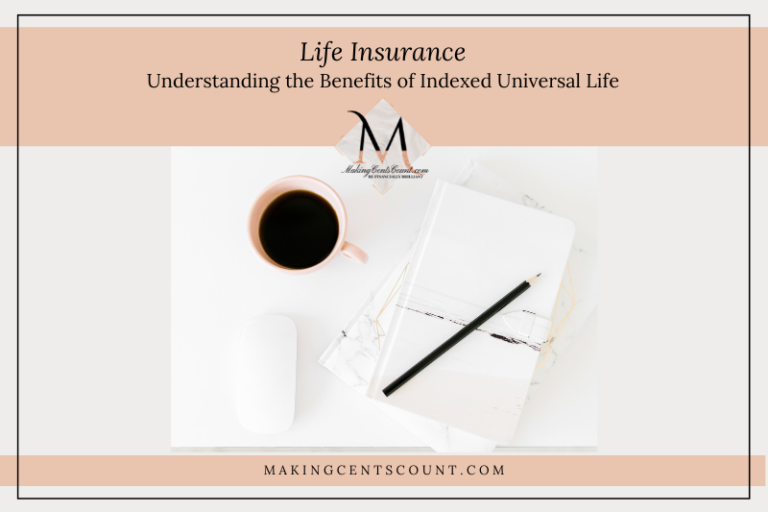Unveiling the Truth: Can You Get Life Insurance After Bankruptcy?
Estimated reading time: 10 minutes
Unveiling the Truth: Can You Get Life Insurance After Bankruptcy? Well, your eligibility for coverage depends on various factors, including your financial history. It’s crucial to understand that life insurance carriers view current or past bankruptcies as a potential risk. This perception arises because bankruptcy suggests a possibility that you might have difficulty paying your future policy premiums. Therefore, it’s essential to weigh these factors carefully before seeking life insurance coverage post-bankruptcy.
What does this mean? It suggests the significance of preparing for potential experiences before making a commitment. This could encompass scenarios such as denied or delayed life insurance applications, increased premiums, limited policy options, and the possibility of temporary coverage as opposed to securing a permanent life insurance policy.
Table of Contents
- Decoding Bankruptcy: Unraveling the Impact on Life Insurance Coverage
- The Power of Bankruptcy: Understanding Its Impact
- Different Shades of Bankruptcy
- The Pros and Cons of Bankruptcy: Weighing the Benefits and Risks
- Get a Fresh Start: Exploring Chapter 7 Bankruptcy
- Cracking the Code: Chapter 13 Bankruptcy Unveiled
- Bankruptcy Blues: Unveiling Chapter 9
- Turning the Tide: Chapter 11 Bankruptcy Explained
- Chapter 12 Bankruptcy: Financial Renewal and Recovery
- Surviving Financial Turmoil: A Closer Look at Chapter 15 Bankruptcy
- Recovering Finances: Securing Life Insurance After Bankruptcy
- The Power of a Bankruptcy Discharge: What it Means for You
- Protecting Your Future: Understanding Life Insurance Exemptions in Bankruptcy
- From Bankruptcy to Beneficiary: Unveiling Life Insurance Payouts
- Mastering Bankruptcy Guidelines for Different Life Insurance Types
- Get a Fresh Start with Burhoe Insurance Solutions
- Making Cents Count Financial Organizer
Are you ready to start investing, control your finances, and prepare for retirement? Join our amazing community! You’ll receive exclusive financial tips from Making Cents Count, as well as unlimited FREE access to our resource library full of money-saving tools and guides.
Decoding Bankruptcy: Unraveling the Impact on Life Insurance Coverage
Some insurance providers offer only partial coverage until bankruptcy has been fully discharged. Others offer comprehensive coverage.
While purchasing life insurance after bankruptcy can be both frustrating and daunting, it’s important to remember that numerous options are still available.
While bankruptcy and life insurance may seem worlds apart, they both offer crucial protection in your worst-case scenarios. To maximize your financial well-being, it is vital to acquaint yourself with bankruptcy, its various types, and explore post-bankruptcy life insurance options. This knowledge will empower you to create the best possible outcome for your future.
The Power of Bankruptcy: Understanding Its Impact
What bankruptcy can do is help a person by discarding debt or making a plan to repay debts. A bankruptcy case normally begins when the debtor files a petition with the bankruptcy court. An individual, spouses together, or a corporation or other entity can file a petition.
Federal courts handle bankruptcy cases, following regulations specified in the U.S. Bankruptcy Code.
Different Shades of Bankruptcy
Bankruptcies come in various forms, often referenced by their corresponding chapters in the U.S. Bankruptcy Code. These chapters encompass different types of financial hardship, offering a framework for resolution and recovery in a structured manner.
- Chapter 7 or Chapter 13: Depending on the specifics of their situation, individuals have the option to file either of these.
- Chapter 7 or Chapter 11: Businesses have the option to file for Chapter 7 bankruptcy for liquidation or Chapter 11 bankruptcy for reorganization.
- Chapter 9: Municipalities encompass various entities, including cities, towns, villages, taxing districts, municipal utilities, and school districts.
- Chapter 12: Family farmers and fishermen benefit from this initiative by receiving debt relief.
- Chapter 15: Cross-border bankruptcy filings involving parties from different countries.
The Pros and Cons of Bankruptcy: Weighing the Benefits and Risks
Understanding the advantages and potential drawbacks of filing for bankruptcy is crucial. With various types of bankruptcy available, the specific chapter you would file under depends on the unique circumstances of your situation.
Get a Fresh Start: Exploring Chapter 7 Bankruptcy
Chapter 7: This section of the Bankruptcy Code facilitates the process of “liquidation” – the sale of a debtor’s nonexempt assets and the subsequent distribution of the proceeds among creditors. Bankruptcy regulates and oversees the liquidation procedure within the United States. It is the prevailing form of bankruptcy in the country.
Cracking the Code: Chapter 13 Bankruptcy Unveiled
Chapter 13: This chapter of the Bankruptcy Code provides for adjustment of debts of an individual with regular income. Debtors have the opportunity to retain their property while repaying debts gradually over a span of three to five years.
Though not as severe as Chapter 7, allowing for potential eligibility for life insurance prior to bankruptcy discharge. Certain insurance companies offer “limited” coverage for individuals with ongoing Chapter 13 bankruptcy. Others provide “full” coverage.
Bankruptcy Blues: Unveiling Chapter 9
Chapter 9: This chapter of the Bankruptcy Code provides for reorganization of municipalities, which includes cities and towns, as well as villages, counties, taxing districts, municipal utilities, and school districts.
Turning the Tide: Chapter 11 Bankruptcy Explained
Chapter 11: Chapter 11 of the Bankruptcy Code typically pertains to the reorganization process, often involving corporations or partnerships. A debtor in Chapter 11 usually presents a reorganization plan to sustain their business operations and repay creditors gradually. Additionally, individuals or people in business can also seek relief through Chapter 11 proceedings.
Chapter 12 Bankruptcy: Financial Renewal and Recovery
Chapter 12: This section of the Bankruptcy Code pertains to the debt adjustment of “family farmers” and “family fishermen” according to the definitions provided. More precisely, it entails the provision of relief for financially burdened individuals involved in these professions who possess a “regular annual income.” It empowers them to propose and execute a repayment plan for all or a portion of their debts, thereby alleviating their financial distress.
Surviving Financial Turmoil: A Closer Look at Chapter 15 Bankruptcy
Chapter 15: The Bankruptcy Abuse Prevention and Consumer Protection Act of 2005 introduced Chapter 15 into the Bankruptcy Code. Designed with the Model Law as its foundation, its purpose is to offer efficient procedures for handling cross-border insolvency cases involving debtors, assets, claimants, and other relevant parties across multiple countries.
Recovering Finances: Securing Life Insurance After Bankruptcy
Filing for bankruptcy does not necessarily preclude you from obtaining life insurance coverage. However, it is crucial to note that insurance premiums may be higher for individuals in this situation, as insurance carriers perceive them as being of higher risk to insure.
As time passes after your bankruptcy discharge, the impact on your rates tends to diminish. The further you are from this event, the less it affects your rates.
Certain insurance carriers provide limited coverage pre-bankruptcy discharge, while others offer full coverage. Choose the carrier that suits your needs best. Depending on the carrier, securing a policy may require a waiting period.
The Power of a Bankruptcy Discharge: What it Means for You
I know this topic can be perplexing, so bear with me. A “bankruptcy discharge” sets you free from personal obligations for certain types of debts.
This encompasses legal measures and communication with the debtor, including phone calls, letters, and personal interactions. Essentially, once a discharge is granted, you’re in the clear.
Here’s the twist: Although a debtor isn’t personally responsible for discharged debts, any valid lien – a charge on specific property to secure debt payment – remains in effect after the bankruptcy case, unless it becomes unenforceable. As a result, a secured creditor can enforce the lien and reclaim the secured property.
Protecting Your Future: Understanding Life Insurance Exemptions in Bankruptcy
Every state has its unique exemption laws, alongside a set of federal exemptions. In certain states, you have the flexibility to choose either the state-specific or federal exemptions. However, it’s crucial to use one set consistently and refrain from mixing and matching.
Other states have opted out of allowing you to choose which exemptions to use. There are currently 31 of these “opt-out” states. If you’ve lived in an opt-out state for at least two years, you must use that state’s exemption laws. If you’ve lived in an opt-out state for less than two years, you must use the federal exemptions.
Exploring Federal Exemptions for Your Policy’s Cash Value
Under the federal exemptions, you can claim up to $14,875 of your policy’s cash value as exempt. The policy must meet two criteria to qualify for this exemption. First, you (the debtor) must be the policy owner. Second, the insured must either be you or someone who can claim you as a dependent.
If your policy’s cash value is greater than $14,875, you may be able to combine this exemption with the federal wildcard exemption. Starting from April 1, 2022, individuals can take advantage of the federal wildcard exemption of $1,475, along with any unused portion of the federal homestead exemption, up to $13,950. Remember, if you’re married and filing a joint bankruptcy, you have the opportunity to double these amounts.
Unlock Secrets: State Exemption Statutes for Your Policy’s Cash Value
You’ll need to check your state exemption statutes to determine whether your state has a wildcard exemption and if it does, how much you can protect.
If your state’s exemption laws do not provide a specific exemption for life insurance, there may still be options to safeguard the cash value of your policy. You can explore alternatives, such as utilizing your state’s personal property, cash, or wildcard exemptions. By doing so, you can ensure the protection of your life insurance policy’s cash value within the legal parameters of your state.
From Bankruptcy to Beneficiary: Unveiling Life Insurance Payouts
If you qualify to receive life insurance proceeds as a beneficiary within 180 days of filing for bankruptcy, the bankruptcy estate will include those proceeds.
This implies that if you cannot claim the proceeds as exempt, your trustee can seize them. Therefore, whether the proceeds are exempt or not relies on the specific exemption laws you are applying.
Mastering Bankruptcy Guidelines for Different Life Insurance Types
Securing life insurance post-bankruptcy is feasible, although it’s important to note that every provider has distinct prerequisites and varying waiting periods following bankruptcy discharge. Determinations are on a case-by-case basis, considering factors such as your financials, personal health, and family health history.
Decoding Bankruptcy Chapters: Unraveling the Impact on Insurance Types
Different bankruptcy chapters have varying implications for types of insurance. Chapter 7 bankruptcy, also known as liquidation bankruptcy, involves the sale of non-exempt assets to repay creditors. In this case, insurance policies may be considered assets and could potentially be sold to satisfy debts. On the other hand, Chapter 13 bankruptcy, which involves a repayment plan, generally allows individuals to keep their assets, including insurance policies. However, it is important to note that the specific rules and exemptions related to insurance in bankruptcy can vary depending on the jurisdiction and the type of insurance involved. It is advisable to consult with a bankruptcy attorney to understand how the different bankruptcy chapters may impact insurance in your specific situation.
Get a Fresh Start with Burhoe Insurance Solutions
After filing for bankruptcy, it’s natural to prioritize securing your short-term and long-term financial future. We understand that your financial journey is unique, and we’re here to assist you in finding the insurance plan that best suits your needs and budget. Reach out to Burhoe Insurance Solutions today and let us help you move forward with confidence.
If working on your finances is one of your goals right now (or, maybe it’s been a goal for some time), I suggest starting with the Making Cents Count Financial Organizer.
Our financial organizer is the robust answer you need. The organizer is our DIY financial services option, providing you with the tools to eliminate financial overwhelm.
In the exclusive Making Cents Count Financial Organizer, you’ll get:
- Clear strategies to get your finances under control
- Processes to organize and streamline your investments
- Guidance to track your legal documents, tax information, and permanent records
- Markers to know when you should meet with an attorney to establish a will or trust
- Templates, checklists, and step-by-step actions
- Insights on the financial must-haves to build a secure future
- Detailed How-To Guide for optimal results
If you want financial confidence, grab the Financial Organizer, and get results that fit *your* lifestyle!
Making Cents Count Financial Organizer
Once you get your budget rolling, check out my post on 6 Simple Steps to Get Financially Organized. This post also includes a helpful checklist available in my Resource Library (free to access).
Admittedly, this particular checklist has a larger-scale focus on your overall financial picture, but I genuinely feel that getting your finances organized is essential.
I’m so excited to invite you to join our Financial Success Society Waitlist! Our enrollment opens soon (so don’t miss a chance to get on the notification list). Your journey to financial success is unique and with this exclusive membership, you’ll receive the guidance you desire, enabling you to move financially forward, no matter where you are in your financial journey. At Making Cents Count, we offer an array of outstanding products and services to help you get control of your finances so they won’t control you!







